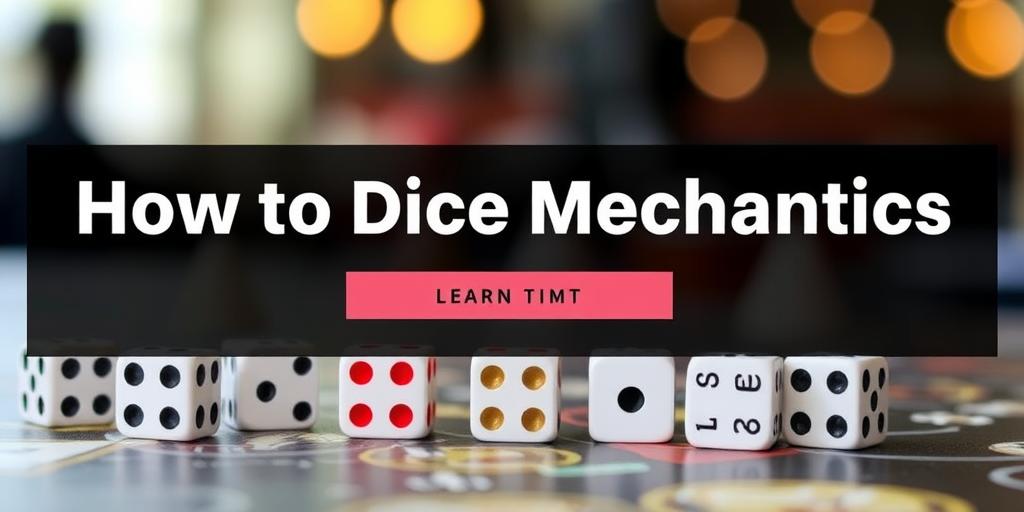Dice Mechanics Explained: Pools vs. Single Die vs. Buckets o' Dice
In tabletop role-playing games (TTRPGs), dice mechanics are the heart of the game. They introduce randomness and determine the outcomes of actions, adding an element of chance and excitement. Different games employ various dice mechanics, each with its own set of advantages and disadvantages. Understanding these mechanics can help players and game masters (GMs) appreciate the nuances of different game systems. This post will explore three primary types of dice mechanics: dice pools, single-die systems, and "buckets o' dice."
Dice Pools
Dice pool systems involve rolling a number of dice and summing or counting successes based on a target number. These systems are popular in games like Shadowrun, World of Darkness, and L5R (Legend of the Five Rings).
How They Work
In a dice pool system, a character's attributes and skills determine the number of dice rolled. For example, a character with a Strength of 3 and a Melee skill of 4 would roll 7 dice when attempting a melee attack. The target number is usually fixed, and each die that meets or exceeds this number is considered a success. The more successes, the better the outcome.
Advantages
- Granularity: Dice pools offer a high degree of granularity. Adding or subtracting a single die can significantly impact the odds of success, allowing for fine-tuned character progression and situational modifiers.
- Intuitive: Many players find dice pool systems intuitive because the number of dice directly reflects a character's competence. More dice equal a higher chance of success.
- Dramatic Potential: The variance in dice pools can lead to dramatic swings in fortune, creating memorable moments at the table.
Disadvantages
- Complexity: Counting multiple dice can be time-consuming, especially with large pools. This can slow down gameplay, particularly in fast-paced situations.
- Statistical Clumping: Dice pools tend to produce results that cluster around the average, reducing the frequency of extreme outcomes compared to some other systems.
Single-Die Systems
Single-die systems typically involve rolling one die, often a d20 (20-sided die), and adding modifiers to the result. This mechanic is famously used in Dungeons & Dragons (D&D) and Pathfinder.
How They Work
In a single-die system, a player rolls a d20 and adds relevant modifiers, such as attribute bonuses, skill ranks, and situational adjustments. If the total meets or exceeds a target number (the Difficulty Class or DC), the action succeeds.
Advantages
- Simplicity: Single-die systems are straightforward and easy to learn, making them accessible to new players. The math is simple, and the process is quick.
- High Variance: The d20 has a wide range of possible outcomes, leading to significant variance. Even a highly skilled character can fail, and an unskilled character can succeed, adding an element of unpredictability.
- Familiarity: The d20 system is widely recognized and has a large community, making it easy to find resources and players.
Disadvantages
- Limited Granularity: Modifiers have a significant impact on the outcome, but the single die limits the granularity of results. Small changes in ability can feel less impactful.
- Swingy Results: The high variance can lead to frustrating situations where characters fail at tasks they should reasonably succeed at, or vice versa.
Buckets o' Dice
"Buckets o' dice" systems involve rolling a large number of dice, typically d6s or d10s, and summing the results or counting specific outcomes. This mechanic is common in games like Warhammer 40,000 and FATE.
How They Work
In a "buckets o' dice" system, players roll a large number of dice and either sum the results or count the number of dice that meet a certain criterion. For example, in Warhammer 40,000, players might roll a dozen d6s and count the number of dice that roll a 4 or higher to determine the number of successful hits.
Advantages
- Excitement: Rolling a large number of dice can be exciting and visually appealing. It adds a tactile element to the game.
- Statistical Predictability: While individual dice rolls are random, the large number of dice rolled leads to more predictable outcomes. This can make planning and strategy more reliable.
- Flexibility: "Buckets o' dice" systems can be easily modified to suit different game mechanics. Dice can be added or subtracted based on situational factors, and the target number can be adjusted to control the difficulty.
Disadvantages
- Logistics: Rolling and counting a large number of dice can be cumbersome, especially without specialized dice trays or counting tools.
- Potential for Analysis Paralysis: The number of dice and the complexity of the calculations can lead to analysis paralysis, slowing down gameplay.
Choosing the Right Mechanic
The choice of dice mechanic depends on the desired gameplay experience. Dice pools offer granularity and dramatic potential, single-die systems provide simplicity and high variance, and "buckets o' dice" systems offer excitement and statistical predictability. Each mechanic has its strengths and weaknesses, and the best choice depends on the preferences of the players and the goals of the game.
Understanding these different dice mechanics can enhance your appreciation for the design choices in various TTRPGs and help you find the systems that best suit your play style.









